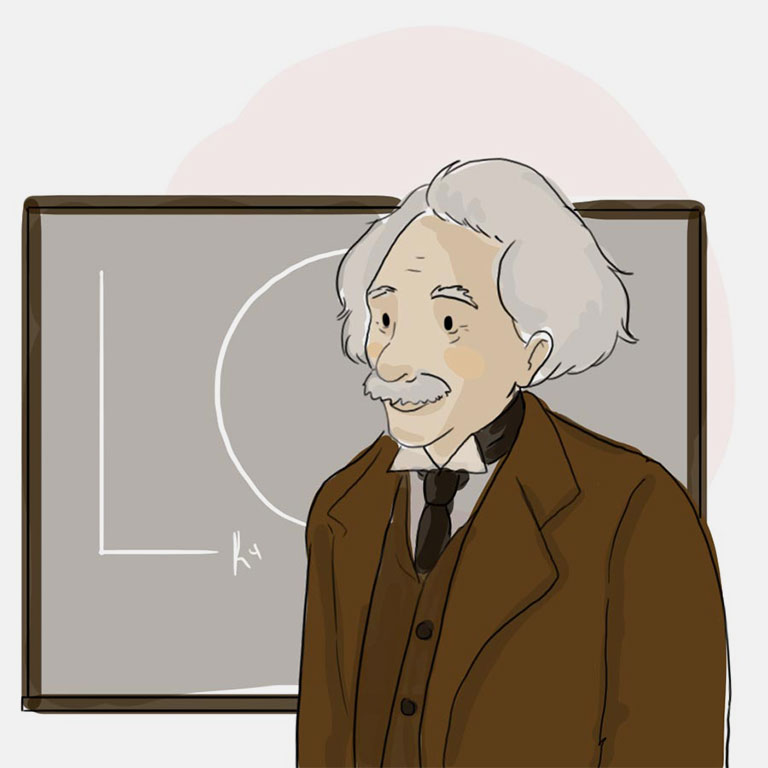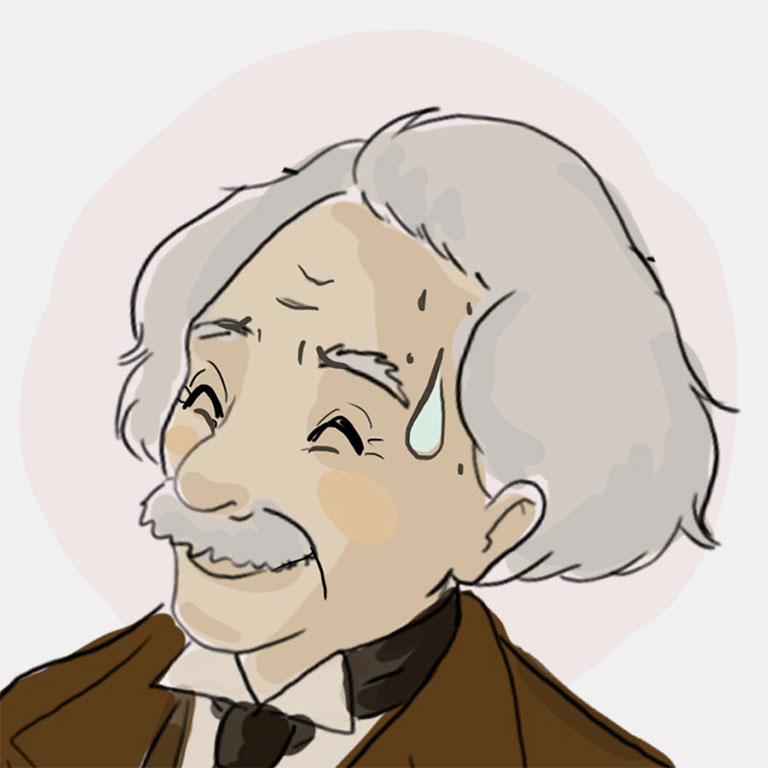To talk about past events it is necessary to know how verbs in the simple past are conjugated. Albert Einstein is going to guide you, read his explanation carefully.

Spelling Rules
If the verb ends in -e, you just add a -d.
For example:
| Simple form | Simple past |
|---|---|
| Close | Closed |
| Name | Named |
| Imagine | Imagined |
If the verb ends in consonant + y, drop the -y and add -ied.
For example:
| Simple form | Simple past |
|---|---|
| Dry | Dried |
| Study | Studied |
| Reply | Replied |
Note: if the verb ends in vowel + y, just add –ed without dropping the y:
| Simple form | Simple past |
|---|---|
| Play | Played |
| Stay | Stayed |
| Enjoy | Enjoyed |
If the verb ends in consonant + vowel + consonant, you double the last consonant and then you add -ed.
For example:
| Simple form | Simple past |
|---|---|
| Rob | Robbed |
| Stop | Stopped |
| Ban | Banned |
Note: If the verb ends in w or x you just add -ed. For example:
| Simple form | Simple past |
|---|---|
| Mix | Mixed |
| Allow | Allowed |
Now let’s check the pronunciation. It’s also very simple.

Regular verbs pronunciation
There are three different pronunciations in the simple past regular verbs. Check the chart and listen. Notice the difference in the final sound.
| /t/ | /d/ | /ɪd/ |
| Worked | Listened | Needed |
| Talked | Called | Started |
Did you notice the difference? Now it is time for you to practice. I know it’s not that simple but with practice, I promise, it will become easier.
Listen and choose the sound you listen to.
| /t/ | /d/ | /ɪd/ | |
|---|---|---|---|
| Travelled |
|
|
|
| Talked |
|
|
|
| Listened |
|
|
|
| Opened |
|
|
|
| Closed |
|
|
|
| Hated |
|
|
|
| Finished |
|
|
|
| Decided |
|
|
|
Irregular verbs
Don’t think I forgot about the irregular verbs. I’m about to explain that.
Irregular verbs don't follow a rule as the regular verbs, you just need to learn them by heart. Here I share a list of some of the most common ones. Click on the verb to listen to the pronunciation.

| Simple Form | Simple Past |
|---|---|
| Be | Was/Were |
| Buy | Bought |
| Bring | Brought |
| Drink | Drank |
| Eat | Ate |
| Go | Went |
| Give | Gave |
| Know | Knew |
| Leave | Left |
| Speak | Spoke |
| Wear | Wore |
If you want to learn more about this go to: Irregular Verbs
Finally, to talk about events in the past it is necessary to specify when they happened so we use time expressions. Use these:
- Last: last week, last month, last year, last summer, etc.
- Ago: a week ago, two days ago, ten years ago, etc.
- In + months/years: in May, in 2010, etc.

Tim Bernes-Lee invented the World Wide Web (INTERNET) in 1989.

The COVID-19 pandemic started in 2019 in China.

Usain Bolt retired in 2017
Complete the conversations (1-3) with the past form of the verbs in the box.
start / call / know / forget / be / have / get / happen / invent
If you want to learn and practice more about this go here: We lived a beautiful and happy life, Finally, I did it


